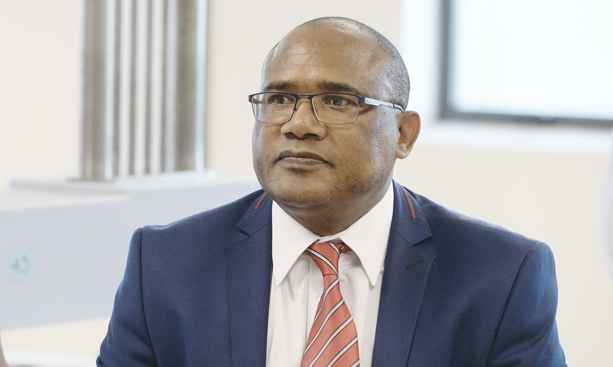Some academics at the University of Botswana have been threatening The Patriot on Sunday after publishing an article which raised concern about allegations of rampant plagiarism and poor research ethics at the institution. The publication has received hostile reaction from some academics who threatened to sue this publication for what they termed a witch hunt perpetrated by gossipers. One Professor, in the Faculty of Social Sciences, even threatened legal action should we publish any material that saw him involved in a protracted legal battle with UB management some years back. Such threat comes, notwithstanding that the publication had never made specific reference to any research he was involved in.
Investigations by The Patriot on Sunday has since turned up information showing that the Professor’s fears are misplaced after the Head of Department -Economics, Dr Malebogo Bakwena, cleared all her subordinates of any wrong doing in the research papers suspected to contain recycled material. In fact, sources told this publication that the verdict was delivered to UB management last week and has been accepted. When reached for comment, Vice Chancellor Professor David Norris, confirmed that UB management has concluded investigations on the specific cases which The Patriot on Sunday enquired about. He said the university is satisfied with the findings from the Department of Economics, which has not established any case for plagiarism. “I cannot discuss the details of our investigations, safe to say we have not found any evidence of plagiarism in the cases you cited,” he said.
Notwithstanding the denial The Patriot on Sunday is reliably informed that Prof Norris recently rescinded a pending disciplinary action against a staff member in the Department of Psychology that dates back to 2014.
Dept of Psychology
Defending his decision, Prof Norris said the matter had to be brought to finality because it had been dragging on for many years without a conclusion in sight. Although he declined to discuss specific details of the case citing employer/employee confidentiality, The Patriot on Sunday has it on good authority that the said staff member had in 2014 applied for promotion, which the Department and later FAPRC, rejected after her publications were assessed and evidence of plagiarism and other academic misconduct were discovered. The staff member appealed the rejection and the Appeals Committee of the UB Council referred tha matter to the Disciplinary Committee. However, UB management could not proceed with the disciplinary action after the staff member interdicted the process.
Although the Department sought the intervention of the Director Human Resource in 2015, by submitting evidence of plagiarism and publication of the same material in different journal outlets and rampant indiscipline, nothing has happened. To date, the HR Director is yet to respond. Observers point an accusing finger at the lackadaisical attitude of some administrators in handling the issue, and raise questions over why the staff member was singled out for punishment when she had co-written the publications complained of with her colleagues. “This weakened the case for UB and they would have probably lost it if she challenged whatever decision they made in court as it is clear that she was targeted. Failure to resolve the issue within reasonable time also created a challenge with the passage of time,” said a source.
In another incident, a staff member in the Department of Psychology applied for contract renewal in 2014 but was rejected and her contract was not renewed after an assessment found her publications suspect. The decision was supported by FAPRC.
Dept of Statistics
Investigations have also shown that a Nigerian Professor was arraigned before the UB Disciplinary Committee on November 30, 2016 charged with plagiarism but only got away with a ‘final written warning’ because he was adjudged to be a first offender. He had been found guilty as charged after due process of disciplinary hearing based on evidence submitted before the committee chaired by Pro J. Melamu. Six months later he applied, and was granted sabbatical leave.
Absolving the Department of Statistics management of any wrongdoing, its Head Dr L. Mokgatlhe, said if the SAPC had felt at the time that the journal articles in question had been used towards the promotion of the Nigerian Professor, based on the guilty verdict returned by UBDC, then the committee which is chaired by the Vice Chancellor of UB was at liberty to take action against the perpetrator including withdrawing the promotion. This is so because, for an associate professor to be promoted to a full professor, the application is considered by SAPC following the recommendation of FAPRC. “This is not the prerogative of the department,” wrote Mokgatlhe responding to an inquiry from UB management.
Dr Mokgatlhe has also denied any plagiarism from publications dating back to 2017, when the claim was first made. The HoD said three independent scholars who are experts in the field of Statistics had been appointed to review the journal articles complained of but came to the conclusion that allegations that their contents are recycled research material are unfounded.
Dept of Economics
Dr Bakwena said recent claims made by The Patriot on Sunday had long been investigated back in 2016, after allegations of plagiarism surfaced regarding one of the articles submitted for promotion to associate Professor by Dr B.O Tsheko. There were suspicions that certain parts of the paper he published in Botswana Journal of Economics were copied word for word without acknowledgement of an article that was published earlier. Three Professors were appointed to investigate the allegation but in the end concluded that the core study was original and that the alleged self-plagiarism was insignificant.
It has also emerged that, as part of the investigations in 2016, the three Professors summoned Professor Happy Siphambe in his capacity as the Chief Editor of the BOJE and he made a written submission where he explained that the original and revised paper passed plagiarism test at 3% and 1%, respectively. The paper was approved for publication in the journal.
